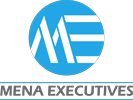Corporate culture is a defining element of any organization. It shapes how companies operate, make decisions, and interact with employees. When it comes to headhunting, understanding a company’s corporate culture is crucial for identifying the right leadership talent that not only possesses the necessary skills and experience but also fits seamlessly with the organizational ethos. At Mena Executives Career, we have seen firsthand how a well-articulated culture can significantly influence the success of executive placements.
Understanding Corporate Culture in the Modern Business Landscape
Corporate culture encompasses the values, beliefs, and behaviors that define an organization. It is reflected in the way a company treats its employees, makes decisions, and conducts business. For headhunting firms, this means going beyond a candidate’s resume to assess whether they will thrive in the company’s unique environment. An effective headhunter must consider both the technical competencies of a candidate and their potential cultural fit.
This dual focus is particularly important in today’s dynamic global market, where companies must adapt quickly to changing conditions. A strong corporate culture not only attracts talent but also retains it, fostering an environment where employees are motivated to contribute to long-term success. As organizations increasingly recognize the value of culture, headhunting strategies have evolved to include cultural alignment as a key component of the selection process.
How Corporate Culture Influences Headhunting
The impact of corporate culture on headhunting is profound. When companies have a well-defined culture, headhunters are better positioned to search for leaders who can embody those values and drive the organization forward. For instance, a company that prides itself on innovation and agility will seek out candidates with a proven track record of creative problem-solving and adaptability. Conversely, organizations that emphasize stability and tradition might look for leaders with extensive experience in structured environments.
Integrating cultural assessments into the headhunting process involves detailed discussions with the hiring organization to understand their internal dynamics. This includes exploring aspects such as leadership style, decision-making processes, and team interaction. In many cases, cultural fit can be a determining factor in whether a candidate succeeds in a new role. Leaders who align with the company’s ethos are more likely to inspire trust and drive meaningful change, while those who do not fit in may struggle to gain traction despite having impressive credentials.
Strategies for Aligning Headhunting with Corporate Culture
Effective headhunting requires a strategic approach that integrates an understanding of corporate culture from the outset. Here are some key strategies:
- In-Depth Cultural Analysis: Before beginning a search, it is essential to conduct an in-depth analysis of the company’s culture. This includes interviews with key stakeholders, surveys of employee satisfaction, and a review of internal practices. Understanding these factors helps tailor the search to find candidates who will seamlessly integrate into the organization.
- Customized Candidate Profiles: Based on the cultural analysis, headhunters can develop customized candidate profiles that highlight not only the required skills and experiences but also the attributes that align with the company’s culture. This may involve identifying specific personality traits or leadership styles that complement the existing team dynamics.
- Behavioral Interviewing Techniques: Utilizing behavioral interviewing techniques allows headhunters to assess how candidates have responded to past challenges and whether their approach aligns with the company’s values. By asking situational questions, recruiters can gauge a candidate’s fit with the organizational culture.
- Continuous Engagement: Maintaining ongoing communication with both the client and the candidate throughout the recruitment process ensures that cultural alignment is continuously evaluated. This iterative process helps refine candidate selections until the best fit is found.
Regional Perspectives: The Role of Culture in Key Markets
Corporate culture plays a unique role in different regions around the globe. In the Middle East, for instance, countries like Saudi Arabia, Qatar, and Dubai are not only economic powerhouses but also regions with distinctive cultural characteristics that impact business practices.
In Saudi Arabia, the emphasis on tradition and rapid modernization creates a unique blend of conventional values and progressive business strategies. Headhunters must be sensitive to these dynamics when searching for executives who can navigate the complexities of a transitioning market. A leader who understands the balance between tradition and innovation is essential for organizations operating in this region.
Similarly, in Qatar, where there is a strong focus on heritage coupled with modern development, corporate culture is a critical factor in talent acquisition. Companies in Qatar often seek leaders who are capable of preserving cultural values while embracing cutting-edge practices. The ability to blend respect for tradition with a drive for progress makes a significant difference in headhunting outcomes.
Dubai, known as a global business hub, presents its own set of challenges and opportunities. With a diverse workforce and a fast-paced business environment, companies in Dubai require leaders who can thrive in a multicultural setting. The local corporate culture in Dubai is a mix of innovation, luxury, and competitive drive, making cultural fit a decisive factor in successful executive placements.
Real-World Impact and Case Studies
The importance of corporate culture in headhunting is evident in many success stories. For example, a multinational firm operating in Saudi Arabia struggled to integrate new leadership until they aligned their headhunting strategy with their corporate culture. By focusing on candidates who shared the company’s values of innovation and collaboration, the firm was able to identify a leader who revitalized its operations and improved employee morale.
Another case involved a rapidly growing organization in Qatar that needed to fill several key executive roles quickly. Instead of relying solely on traditional recruitment methods, the company partnered with a specialized headhunting firm that placed a strong emphasis on cultural fit. The resulting hires not only brought in the required expertise but also reinforced the company’s identity, leading to smoother integration and long-term success.
In Dubai, one of the leading financial institutions faced challenges in retaining top talent despite offering competitive packages. After a thorough analysis, it was discovered that the misalignment between the candidates’ expectations and the company’s corporate culture was a major factor. By adjusting their headhunting process to prioritize cultural alignment, the institution managed to attract and retain executives who were a better fit, thereby enhancing overall performance and reducing turnover.
The Future of Headhunting and Corporate Culture
As businesses evolve and global markets become more interconnected, the role of corporate culture in headhunting will only grow in importance. Organizations are increasingly recognizing that technical skills and experience are not enough; cultural compatibility is essential for driving sustainable growth and innovation. This shift in focus is prompting headhunting firms to refine their methodologies, placing greater emphasis on understanding and aligning with the corporate culture of their clients.
Technological advancements, including data analytics and AI-driven tools, are beginning to play a role in assessing cultural fit. These technologies can help identify patterns and preferences that may not be immediately apparent during traditional interviews. However, while technology offers valuable insights, the human element remains critical. The ability to interpret cultural nuances and understand the intangible aspects of organizational behavior is something that experienced headhunters bring to the table.
Looking ahead, companies that invest in aligning their headhunting strategies with their corporate culture will be better positioned to secure leadership that drives long-term success. This is particularly true in regions such as Saudi Arabia, Qatar, and Dubai, where the interplay between tradition and modernity creates a unique environment for business. As these markets continue to grow and evolve, the importance of cultural alignment in executive recruitment will become even more pronounced.
Conclusion
The impact of corporate culture on headhunting cannot be overstated. A well-defined culture not only guides internal operations but also serves as a critical criterion for selecting leadership. At Mena Executives Career, our approach to headhunting integrates a deep understanding of corporate culture with cutting-edge recruitment strategies. By focusing on cultural alignment, we ensure that the leaders we place are not only skilled but also well-suited to drive the organization’s long-term vision.
Whether operating in dynamic markets like Saudi Arabia, Qatar, or Dubai, organizations that prioritize cultural fit in their headhunting processes are more likely to experience improved performance, enhanced employee engagement, and sustained growth. As the global business environment becomes increasingly competitive, aligning headhunting strategies with corporate culture will remain a key factor in building resilient, forward-thinking organizations.
Ultimately, the intersection of corporate culture and headhunting is where the future of leadership recruitment lies. By recognizing and embracing the importance of cultural fit, companies can secure executives who not only lead but also inspire, ensuring a successful journey toward achieving their strategic goals.




